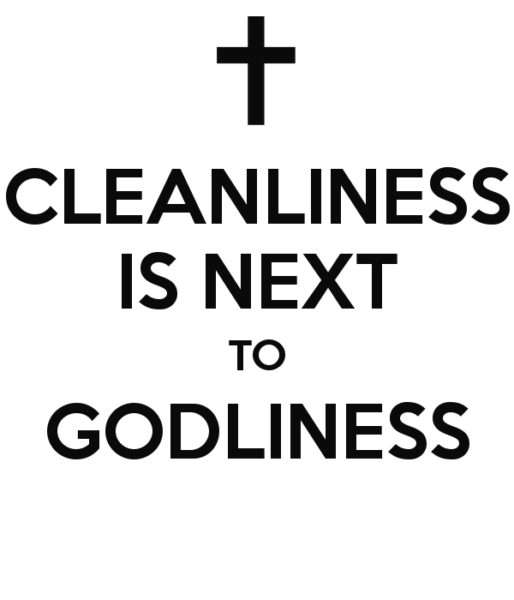“For this very reason make every effort to supplement your faith with virtue, and virtue with knowledge, and knowledge with self-control, and self-control with steadfastness, and steadfastness with godliness, and godliness with brotherly affection, and brotherly affection with love. For if these things are yours and abound, they keep you from being ineffective or unfruitful in the knowledge of our Lord Jesus Christ.” -2 Peter 1:5-8
If the saying, “Cleanliness is next to godliness” is true– my mother would easily rank as one of the godliest people I have ever known. My mother cleaned our home with the greatest of care. There was never a dirty dish in the sink or a speck dust on shelf. She would vacuum the carpet every day before she left the house. Every night, after dinner, my mother could sweep and mop the kitchen and dining room floors. We once had to replace the flooring in the kitchen and dining room because my mom had mopped the finish off the tile (yes, really). If there is a connection between cleanliness and godliness, well then, my mother was well connected to God!
The phrase, “Cleanliness is next to godliness” is not a biblical quote. Although it seems like something taken right out of Leviticus or Proverbs, it is not. The phrase dose not actually appear in writing until 1791 when in his sermon, “On Dress,” John Wesley writes, “Slovenliness is no part of religion…Cleanliness is indeed next to godliness” John Wesley is not the originator of this phrase. In fact, he is quoting someone or at least alluding to a commonly used phrase.
The Bible does have several references to cleanliness. In the Old Testament, cleanliness is most often part of following the law. If one were to eat the right things, worship in a certain way and keep the commandments you were, for the most part, considered “clean.” When a person was unable to follow the law, there were washing rituals that would help restore them to a state of being clean. Being physical clean did and does help to live together in community.
I understand the many reasons that this commonly used phrase has remained throughout history. I am sure parents have used it to encourage their children to clean their rooms or wash behind their ears while priests in medieval times may have used a similar phrase to help encourage cleanliness in their communities to help prevent disease. While both cleanliness is an important part of our lives it is not a tool that brings God closer to us. God does not wait for us to vacuum our carpet or wash the dishes. God is present with us in the messy moments of our lives, or while we are cleaning up.
My mother was a godly woman; however, it was not the condition of our home that brought her close to God. My mother was a godly woman because she had a tremendous trust in God. She knew God was present with her as she cleaned, went to work or church. Godliness is a condition that develops in us as we grow in our faith, our knowledge of God and our trust in God’s good will towards us. When we grow in our love for God and our love for our neighbors we become a godly people.
Rev. Keith King, Online Campus Pastor



